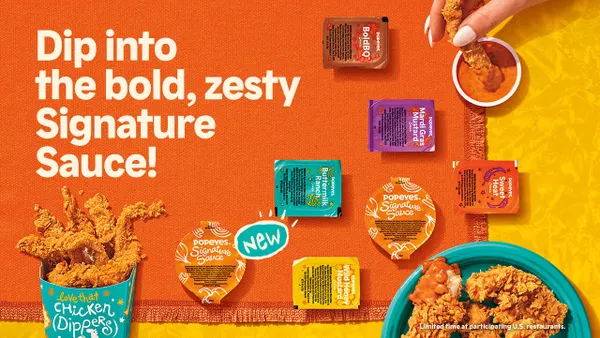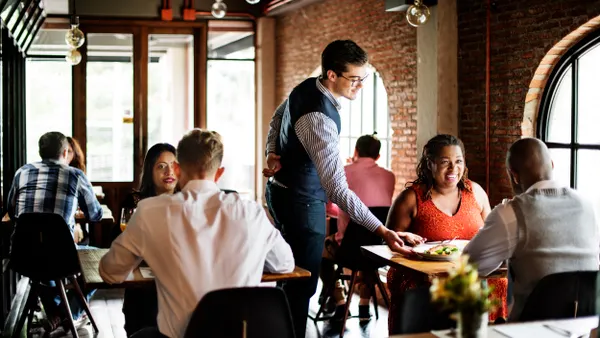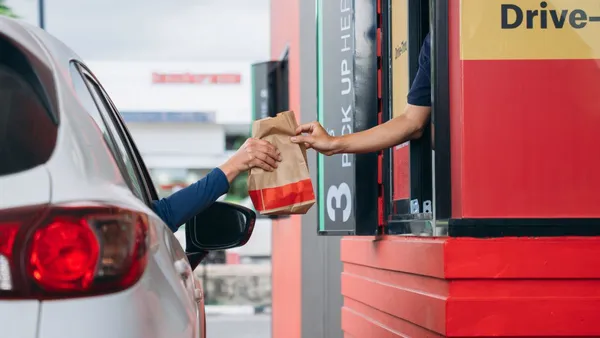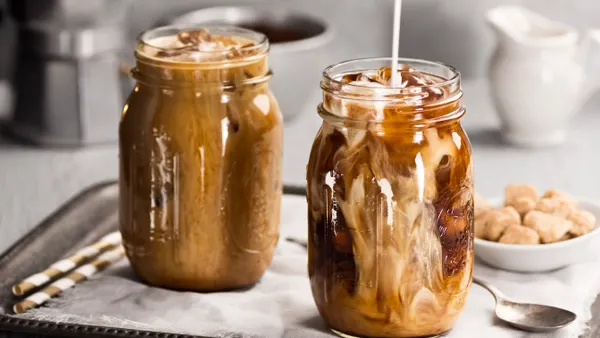Dive Brief:
- Entertainment bar and restaurant mini-chain Punch Bowl Social hired its first dedicated culinary and beverage executive, according to a company release. Sheamus Feeley joins the Denver-based team from BJ’s Restaurants, a casual dining chain with almost 200 locations, where he oversaw culinary and kitchen innovation.
- “... having Sheamus on our leadership team enables the company to continue to aggressively develop and continuously improve our culinary and beverage programs during this exciting time for our growing company," founder and CEO Robert Thompson said, noting Feeley's innovative approach to upscale casual menus.
- Started in Denver in 2012, the company now operates 14 locations in 10 states with plans to open nine more by 2019. On Wednesday, the company announced $20 million in financing for expansion, only a year since receiving an undisclosed amount from a private equity firm.
Dive Insight:
Punch Bowl Social has garnered high praise this year, earning a spot on Nation’s Restaurant News’ Hot Concepts 2018 and Fast Company’s Most Innovative Companies in the gaming category. Its rapid growth highlights the burgeoning “eatertainment” subset of casual restaurants, where upscale grub, craft beer and cocktails complement a laid-back atmosphere full of activities including board games and bowling.
Thanks to former “Top Chef” judge and celebrity chef Hugh Acheson, who previously consulted on the company's menu and recipe development before moving on due to schedule conflicts, Punch Bowl’s kitchen immediately became a focal point for the brand, rather than an afterthought. Bringing on a full-time executive chef with Feeley's pedigree signals dedication to high-quality food and drink amid quick expansion.
As of October 2017, food and drink sales accounted for 89% of sales at the company. The games are what Thompson calls the “cheese in the mousetrap,” attracting customers to the company's unique experience. Punch Bowl Social aims to connects with millennials who appreciate the whole eatertainment package, and hopes Generation Z will be similarly receptive.
That goal — of giving adults a place to eat good food while letting their hair down like they were kids again — has morphed into a trend. Casinos arguably first brought together dinner, drinks and games in public, albeit with far higher stakes, and some of the modern-day gaming bars count them among their rivals.
Thompson realized the concept’s potential in 2015, hiring a CFO, a VP of operations and a culinary director. Sales doubled from 2014 to 2014 to $30 million, though sales differed by the millions depending on the city. Punch Bowl’s spaces are also huge, at up to 30,000-square feet, making them ideal venues for high-ticket company outings and holiday parties. Real estate partners have also played an outsized role: Dan Gilbert, the Cleveland Cavaliers’ owner and Quicken Loans founder is a partner in the Detroit space, and in Cleveland the Fairmont Group is a landlord and an investor.
Unlike Punch Bowl Social, most national chains have focused on the gaming aspect of their businsses. In fact, unlike modern barcades, Dave & Buster’s makes more money from games than food and drink. But Punch Bowl Social has created a menu of shareable plates and sandwiches superior to their soggy inspiration served at bowling alleys across America — and is growing to be a dynmaic competitor for both rival eatertainment concepts and traditional restaurants as consumer demand for interesting eating experiences grows.












